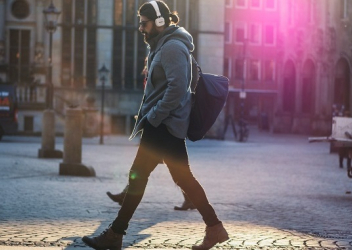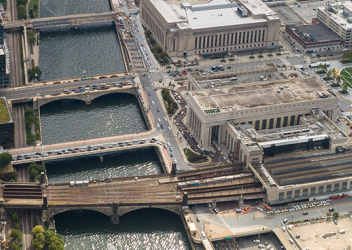Research In Action
Research In Action
Breadcrumb

Getting a drivers’ license is considered a rite of passage for most Americans; but, what if being licensed to drive didn’t depend on your ability to execute a three-point turn or successfully merge lanes on the highway? What if instead, your license depended on your ability to pay a parking ticket or to take time off from work to appear in court?
For approximately 5% of New Jersey drivers, that’s the case as a new study I co-authored with colleagues from Brown University School of Public Health and CIRP published in the Journal of Transport & Health shows.
Using the New Jersey Safety and Health Outcomes Data Warehouse, we examined the licensing history of over 10 million licensed drivers in NJ over a 15-year period and found that the vast majority (91%) of all license suspensions were due to non-driving-related events, such as failure to pay a fine or fee.
The importance of a license for accessing social and economic opportunity cannot be overstated. For the vast majority of US residents, driving is central to employment, health, and ensuring a high quality of life. Although lawmakers have acknowledged the importance of driving, almost every policy targeted at improving access to a vehicle has focused on the vehicle itself. As a result, policies that limit licensing have largely flown under the radar.
Unequal Effects of Suspensions
This might not be the case if suspensions affected everyone equally. But, as we show in our paper, license suspensions are highly concentrated in certain neighborhoods -- neighborhoods where the majority of residents are Black or Hispanic and where the median income is well below the state average.
The potential for these suspensions to exacerbate already existing disparities in access to health care and employment cannot be overstated. Previous surveys of suspended drivers have found significant effects on the ability to keep a job or find a new one, and our research team is currently conducting in-depth interviews investigating the potential for these license suspensions to trigger a devastating downward spiral.
If these non-driving-related suspensions resulted in safer roads, we, as a society, might feel the tradeoff was worth it. But our research suggests this is not the case, with the overwhelming majority issued for failing to pay a fine or fee. If you pay, you can keep your license.
Growing up in Brooklyn, NY I didn’t think too much about getting my license. I could get where I wanted to go via public transportation, and most people I knew rarely drove. In fact by the time I graduated from high school, only a few of my friends had bothered to get licensed. But my experience was the exception, not the rule. Most people can’t participate meaningfully in society without a valid driver’s license. By suspending their licenses for failure to pay a fee or a fine, we risk forcing people to choose to drive illegally to get to work, school, or doctor appointments.
Six states have passed legislation banning driver’s license suspensions for non-driving-related events, and a few more are considering it. The time is now to encourage more states to take action to remove this transportation barrier.




